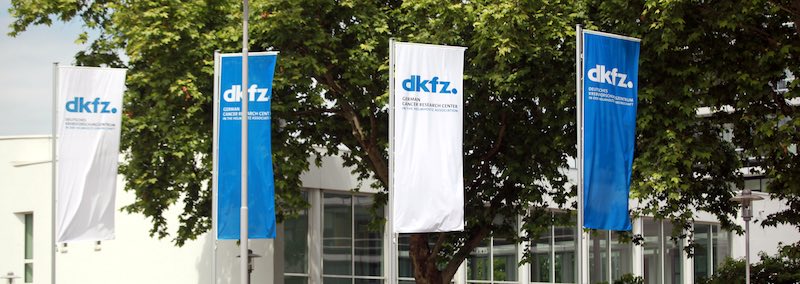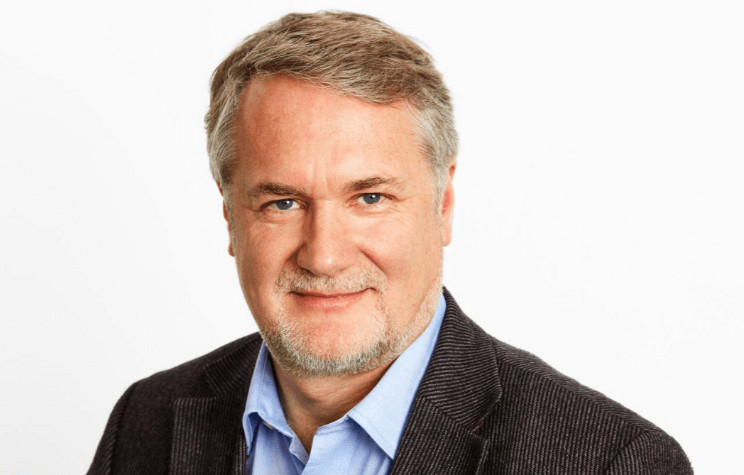Newsletter Signup - Under Article / In Page
"*" indicates required fields
Patrick Baeuerle is the German biotech leader I wanted to interview the most (besides Simon Moroney from MorphoSys, who came to our Meetup in Munich last week). Patrick has explored and succeeded in just about every area of life sciences, be it as a highly cited academic researcher, a professor at Freiburg University, head of drug discovery in biotech startups Tularik and Micromet, a vice president at Amgen, the world’s largest biotech company, and now as a managing partner of venture capital firm MPM. He shared his story and wisdom with me in this interview.
Patrick Baeuerle started his career in academia and was already called at the age of 34 as a professor and chairman at Freiburg University. He then swiftly figured out that academia wasn’t where he could have the biggest impact and decided to transition to industry by joining Tularik, a small biotech start-up in South San Francisco. He learned from scratch how to build a biotech company, and how to discover drugs from biotech industry giants like David Goedell and Bob Swanson.
In 1998, he joined Micromet as CSO and helped bring the first bispecific antibody to the market in 2014, preceded by a €1.16 billion acquisition of Micromet by Amgen in 2012.
Since two years, he now is Managing Partner at MPM Capital, a US-based venture capital firm with an investment strategy focused on therapeutics. He still lives in Munich but spends much of his time in the US, mostly in Boston and San Francisco.

You joined Micromet in 1998 as CSO. What made you move from the States into the German biotech industry?
I had a great offer from Micromet which made it easy for me to move back from California. It was also good timing because finally venture capital was injected into Germany’s evolving biotech industry, and made it possible to start companies like Morphosys, Medigene or GPC.
One of my missions as CSO was to transform Micromet from a cancer diagnostic into a therapeutics company. To this end, we tried to in-license two monoclonal antibodies from Centocor, an opportunity that however evaporated when the company got acquired by Johnson & Johnson. What looked like a disaster in the first place, created the opportunity to develop a bispecific T cell-engaging antibody that was in-licensed from inventors at Munich’s LMU.
This antibody ultimately became Blincyto, the first bispecific antibodies ever approved by the FDA. The antibody and its underlying BiTE technology also became the basis for the acquisition of Micromet by Amgen, the largest of a biotech company in Germany to date.

What are your three most important takeaways from the Micromet experience?
Three come to my mind:
- You have to build the company on good science. We made a real big effort when it came to understanding the biology and therapeutic potential behind our T cell-engaging antibodies. This deep knowledge also helped with Blincyto’s speedy approval by the FDA within only 3 months, the fastest ever by the US authority.
- Thorough financing is as important as good science. Our listing on Nasdaq in 2006 opened the coffers from Wall Street, from where we received a lot of money. Initially, venture capital was absolutely critical as raised from top-notch investors like Atlas, 3i, HBM, the Wellcome Trust, Abingworth, Schroder Ventures, or Omega. Likewise, Micromet’s many development collaborations with large pharma partners helped to finance and sustain its large R&D organization.
- You have to be incredibly resilient and overcome many challenges — in Micromet’s case, these were difficult refinancing situations, unforeseen side effects in clinical trials, issues with manufacturing, or trying to convince pharma partners of the way we administer our drug.
What made you join VC firm MPM Capital as Managing Partner?
Essentially, I am working as an “entrepreneur in residence”. MPM allows me to focus on doing what I love most and perhaps can do best, which is building from scratch companies that develop breakthrough cancer therapies. I have already co-founded at MPM a number of new biotech companies in the immuno-oncology space, including TCR2, iOmx, and Maverick, and a few more that are still in stealth mode. Apart from that, I am continuously helping to evaluate new financing opportunities for MPM’s large funds.
MPM seems to invest large amounts from the very beginning, such as the €40M Series A in iOmx. This is more usual in the US than in Europe — What’s behind this strategy?
The reason is that we want management to stay focused on reaching clinical proof of concept, which marks the largest value inflection during the development of a cancer drug. The first 2-3 years are most critical for startups to establish their technologies and identify and develop lead candidates. With multiple small financing rounds, management gets overly distracted from these key goals by raising new money all the time.
Do you think Germany is a good place to invest in biotech?
Honestly, it’s not a question of geography, more a question of opportunity and quality of management. The scientific groundwork for iOmx that originated from the DKFZ in Heidelberg could likewise have come from MIT or Harvard. Biomedical research in Germany is nothing but world class. But we also need world class, serial entrepreneurs who can translate great research into new therapeutics. Finding those is the hardest part.

Let’s talk about what you see coming. Which are your hottest fields?
- Definitely immuno-oncology! I’m a big believer that T cells hold the key to not only treat cancer, but cure it. They are not only the best killer cells we have in the body but T cells have the capacity to find the very last tumor cell in the body and take it out.
- There are a lot of very important cancer targets that previously seemed not druggable, such as p53, Myc or Ras. There is now quite some optimism in the industry that this can be achieved.
- Antibodies affecting immune checkpoints are becoming a backbone of many cancer therapies. I am very curious which combination therapy can significantly increase their response rates, as is currently investigated in some 250+ clinical trials.
It was great talking to Patrick. He definitely is one of the most influential leaders in the European biotech industry, not only by his deep expertise in drug development put now also by the deep pockets MPM has for investing in new cancer therapies. Feel free to let me know what you think in the comments below or per email 😉
Images via Wikipedia/Armin Kuebelbec, Shutterstock.com/vitstudio/pixelliebe






